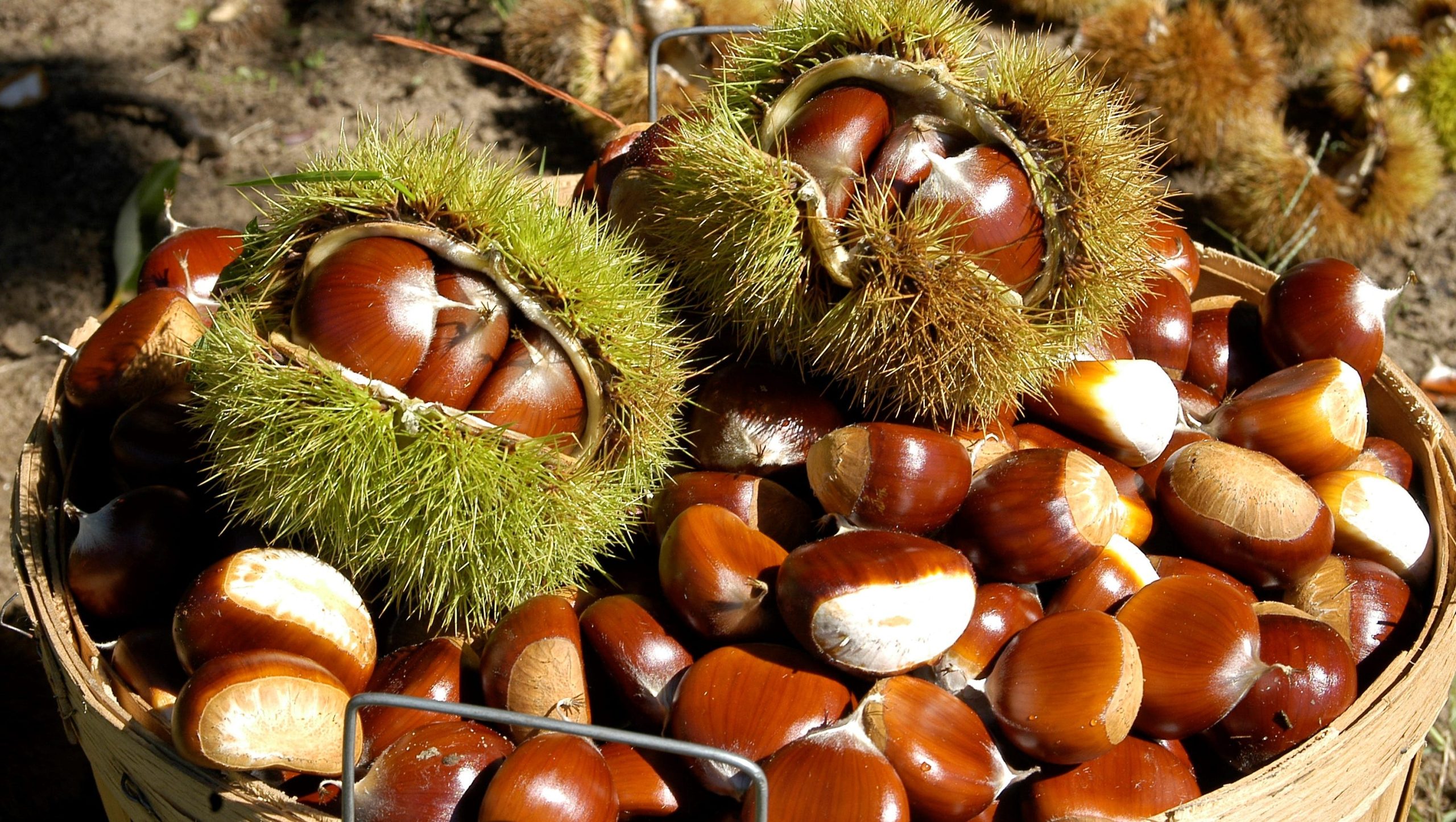Do you know what nutritional value of chestnuts? Many people say “ten chestnuts a bowl of rice”, eat chestnuts easy to gain weight, is it true?
Chestnuts eat soft and sticky, in fact, it is a nut, and walnuts, hazelnuts, almonds are a family. But the chestnut is another type of nut, it is not as rich in oil as other nuts, but contains a lot of starch. Dried chestnut carbohydrates reached 78.4%, and grain cereals equivalent. So “ten chestnuts a bowl of rice”, there is some truth to it. For those who need to control their weight, eating chestnuts must be done in moderation.
The nutritional value of chestnuts is much higher than that of white rice, and the protein content of fresh chestnuts is 4-5%, slightly higher than that of cooked rice. Chestnuts are rich in vitamin B1 and B2, and the content of vitamin B2 is at least four times that of rice. Chestnuts also contain 24mg of vitamin C per 100g, which is incomparable to rice and other grains.
In addition, chestnuts also contain a full range of minerals, including potassium, magnesium, iron, zinc, manganese, etc., especially potassium. Chestnuts are also rich in dietary fiber and have a lower glycemic index than rice, so diabetics can also eat them in moderation. In addition, chestnuts are also a good source of polyphenolic compounds. Chestnuts contain more than 1,215 mg of polyphenols per 100 grams, which is among the top foods. Studies have found that polyphenolic compounds may have anti-cancer and anti-inflammatory properties, but again this has mainly focused on test tube studies and animal studies, and there is not enough scientific evidence to show that eating chestnuts can have these effects.
Therefore, I suggest that you eat chestnuts as a healthy food, not with the attitude of eating “health products”, which is certainly correct.
Chestnuts are rich in the minerals potassium and copper
100 grams of fresh chestnuts contain 442 mg of potassium, while bananas, which are claimed to be rich in potassium, contain only 256 mg/100 grams of potassium. Potassium is an important mineral, especially in the modern dietary structure where sodium intake is too high, and potassium intake plays an important role in sodium-potassium balance in the body. In addition to potassium, chestnuts are also a good source of manganese, copper and phosphorus.
Chestnuts are rich in dietary fiber
Chestnuts contain 42 grams of carbohydrates per 100 grams of fresh chestnuts, making them a proper high-carbohydrate food. However, 5.1 grams of these carbohydrates come from dietary fiber.
Dietary fiber is good for intestinal health and preventing constipation. And for a carbohydrate-rich food like chestnuts, these dietary fibers also help slow down post-meal blood sugar spikes and lower the glycemic index of chestnuts.
Of course, chestnuts also have their own little drawbacks.
Chestnuts contain a certain amount of oxalic acid
Oxalic acid is an anti-nutritional substance, and long-term consumption of foods rich in oxalic acid will not only affect the effective absorption of calcium and other trace elements, but also increase the risk of kidney stones and other diseases. In particular, people with a history of kidney stones should be careful to control their oxalic acid intake.
100 grams of chestnuts contain about 72 mg of oxalate, which is a “medium-high” oxalic acid content. The National Kidney Foundation recommends that people with a history of kidney stones limit their daily intake of oxalate to 50 mg.
Chestnuts contain almost no “healthy fats”.
Many people eat nuts to get the healthy, high-quality fatty acids in them, so unfortunately, chestnuts won’t meet your needs. Because they are really low in fat and high in carbohydrates.
Beware that chestnuts can also cause allergies.
First of all, chestnuts belong to a different plant group than nuts such as almonds, walnuts and Brazil nuts. Therefore, chestnut allergy is different from the general allergy to tree nuts. People with allergies should pay attention to whether they have an allergic reaction when eating chestnuts. If you eat chestnuts after the occurrence of itchy skin rash, watery eyes itchy, nasal congestion, bloating or constipation, you should pay attention to check whether it is caused by chestnut allergy.
A small summary
In terms of nutritional composition, chestnuts are very different from the general nuts, it is rich in carbohydrates, while the fat content is very low. Chestnuts are nutritious, rich in vitamins and minerals, including vitamin C and the mineral potassium, which are excellent. Chestnuts contain a certain amount of oxalic acid and should be eaten sparingly by people with a history of kidney stones. In the cold winter, roasted chestnuts and fried chestnuts are healthy and delicious snacks.


